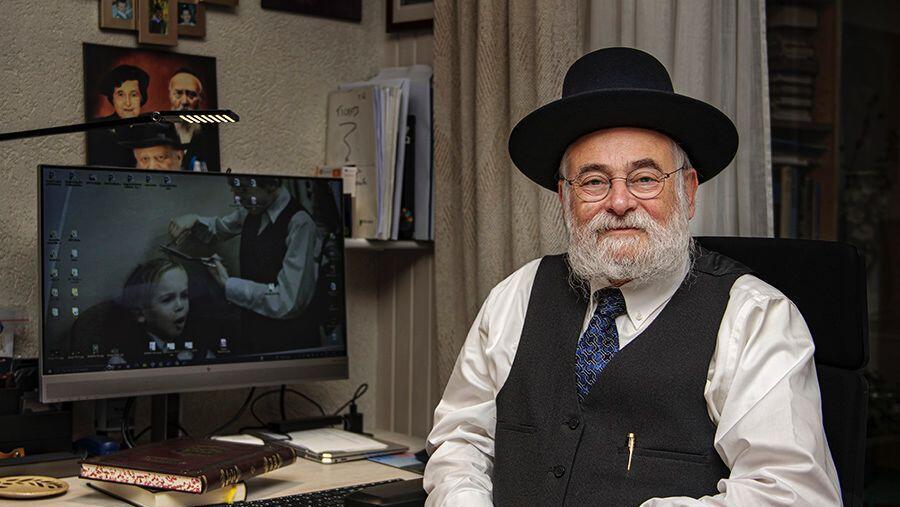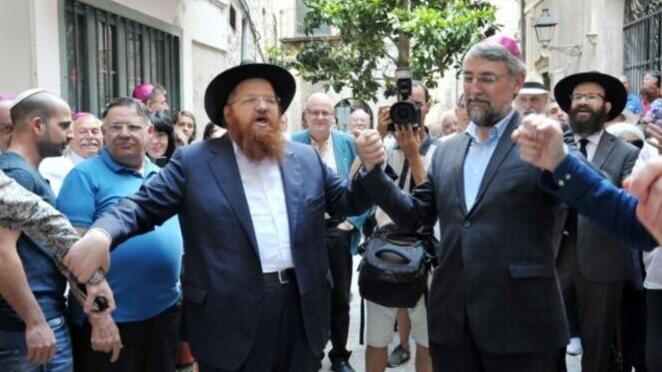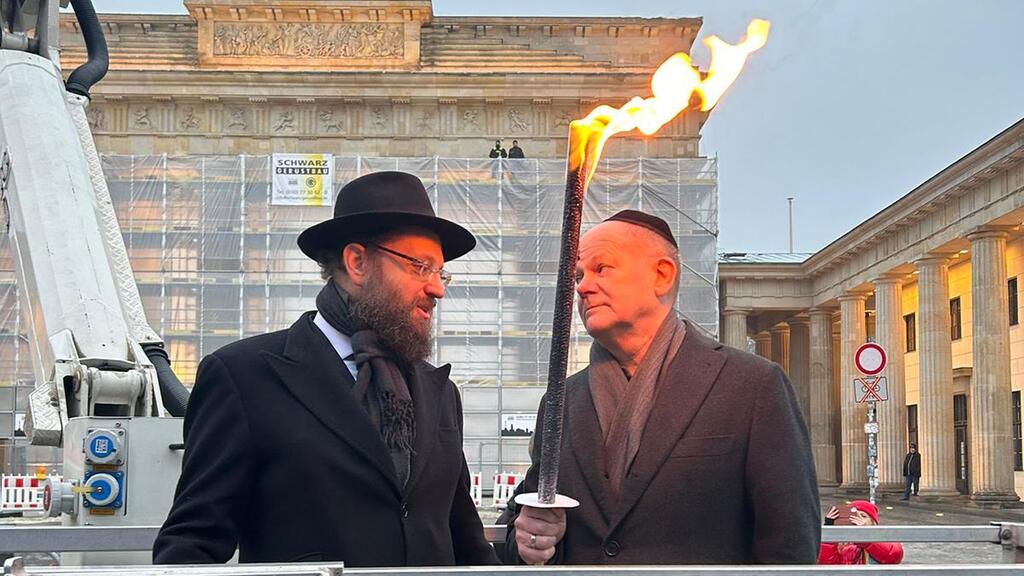Since the kidnapping and murder of Rabbi Zvi Kogan, a Chabad emissary in Dubai, security measures have been heightened at Chabad centers worldwide to prepare for potential attacks or threats. However, fears and incidents of antisemitism didn’t begin with this tragedy.
Around 6,000 Chabad emissaries, inspired by the vision of the Lubavitcher Rebbe, serve as beacons of Jewish life and support communities across the globe. Their mission, which began after World War II to revive Jewish identity, has grown into a global network of outreach and connection.
Rabbi Binyomin Jacobs, the Chabad emissary and chief rabbi of the Netherlands, has witnessed a sharp rise in antisemitism in recent years – a trend that worsened following Hamas’ October 7 attack on Israel.
“Just days ago, someone threw a rock at my house,” he recounts. “Whenever I leave, people shout ‘Free Palestine’ and other slogans. In recent weeks, police have been stationed outside my home for security due to constant threats.”
This wave of hostility isn’t new. “For five or six years now, security officials have advised me not to take public trains or buses,” Jacobs says. “On October 7, the anniversary of the massacre, undercover police were heavily present around my home, and I was instructed not to leave unless absolutely necessary.”
While Jacobs appreciates Dutch government support for the Jewish community, he points out its limitations. “They stress the importance of us staying in the Netherlands and claim to combat antisemitism. But at the same time, they are wary of Islamophobia. Every condemnation of antisemitism or the October 7 attack is followed by a ‘but.’ Unfortunately, as extremists gain influence here, Jews face increasing threats. The police provide assistance, but this surge of hatred is undeniable.”
In Barcelona, Rabbi David Liberson shares similar concerns. “Spain’s support for a Palestinian state has significantly changed the atmosphere here,” he says. “The city is filled with pro-Palestinian graffiti and slogans accusing Israel of child murder. This rhetoric has escalated tensions, creating a volatile environment. Security has been ramped up at all Jewish institutions, including Chabad centers and schools, to ensure we’re prepared for any threats.”
Berlin’s Rabbi Yehuda Teichtal, a Chabad emissary for 30 years, had just concluded a security briefing with Berlin police before this interview. “Since October 7, life here has changed dramatically,” he explains. “When I first arrived, there were 9,000 Jews in Berlin. Today, there are 50,000, creating a thriving Jewish cultural scene. But at the same time, large Muslim populations have also settled here, leading to pro-Palestinian demonstrations and attempts to dominate public spaces.”
Teichtal himself has faced violence. “I’ve experienced physical attacks, spitting and insults while walking home from synagogue,” he says. “One incident made headlines, prompting Germany’s president to visit my home and apologize. While the police provide heavy security, the atmosphere today is far more dangerous. Wearing a Star of David or any Jewish symbol in public could provoke threats or violence.”
Get the Ynetnews app on your smartphone: Google Play: https://bit.ly/4eJ37pE | Apple App Store: https://bit.ly/3ZL7iNv
Rabbi Mendy Kotlarsky, a senior leader in Chabad’s global outreach network, underscores the commitment of the emissaries despite these challenges. “Our hearts are with the family of Rabbi Kogen, a dedicated emissary taken from us by evil. His loss reminds us of the tremendous sacrifices our emissaries make daily. Despite rising antisemitism, our mission remains unchanged: to reach every Jew worldwide.”
He added, “As the Rebbe taught us in times of adversity, we’ll redouble our efforts to spread Torah and mitzvot. Soon, we’ll launch a new initiative in Rabbi Kogen’s memory, ensuring his legacy inspires greater unity and strength.”





